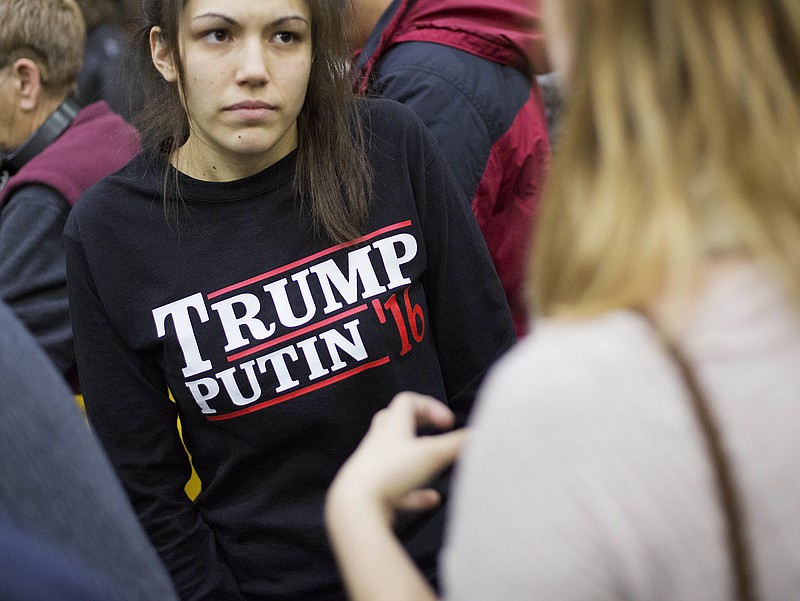Some foreign leaders settle for stealing billions of dollars. Russia's president, Vladimir Putin, may have wanted to steal something even more valuable: an American presidential election.
As our election takes a turn that could be drawn from a Cold War spy novel (except it would be too implausible), Putin has an obvious favorite in the race: Donald Trump.
Look, Democratic Party leaders exchanged inappropriate emails showing bias for Hillary Clinton over Bernie Sanders, and a hacker's disclosure has properly triggered a ruckus. But that scandal pales beside an effort apparently by a foreign dictatorship to disrupt an American presidential election.
It also seems scandalous to me that Trump on Wednesday effectively invited Russia to hack into Clinton's computers for deleted emails from when she was secretary of state.
Clinton could have responded by inviting Russia to hack into Trump's computers and release his tax returns; she didn't because the hack would be illegal and her plea would be unpresidential.
Trump also cast doubt on the idea that Russia hacked the Democratic National Committee's computers.
"It's probably not Russia," he said, suggesting it might be China, or "some guy with a 200 IQ."
So let's go through the evidence.
U.S. intelligence agencies have assessed with "high confidence" that Russia's government was behind the hack, and private security companies have identified two Russian teams of hackers that were inside DNC computers. One team is called Cozy Bear and is linked to the FSB, the successor to the KGB, and another is called Fancy Bear and is linked to the GRU, or Russian military intelligence. Cyber experts are very familiar with both Cozy Bear and Fancy Bear.
The next question is whether Russia was also behind the release of the stolen emails to WikiLeaks. Someone using the name Guccifer 2.0 claimed to be behind the hack, denied Russian involvement and claimed to be Romanian - but wrote Romanian badly. ThreatConnect, a private security firm, issued a meticulous report showing that Guccifer used a Russia-based VPN (virtual private network) service and displayed other "heavy traces of Russian activity."
After talking to experts, I have the sense that there's considerable confidence that Russia is the culprit, but more doubt about whether Putin gave the order and about whether the aim was to benefit Trump or simply to create havoc.
"I think the most likely explanation is that someone in Russian intelligence, probably very high up, decided to help Donald Trump," said Benjamin Wittes, a security expert at the Brookings Institution, but he added that there's no solid evidence for this.
One reason for caution is that history shows that "intelligence community" is sometimes an oxymoron. In the 1980s, the United States accused Russia of conducting chemical warfare in Southeast Asia, citing "yellow rain" in jungles there. Years later, it turned out that this "yellow rain" may have actually been bee excrement.
The reason Moscow favors Trump isn't some conspiracy. It's simply that Putin dislikes Clinton, while Trump's combination of international ignorance and catastrophic policies would benefit Putin.
One nightmare of security specialists is Russia provoking unrest among ethnic Russians in Estonia, Latvia or Lithuania and then using rioting as an excuse to intervene. NATO members would be obliged to respond, but frankly it's not clear that they would - and Trump's loose rhetoric increases the risk of paralysis and a collapse of the alliance.
In that sense, Trump poses a national security risk to the West, and that's reason enough Putin would be thrilled to see him elected president.
